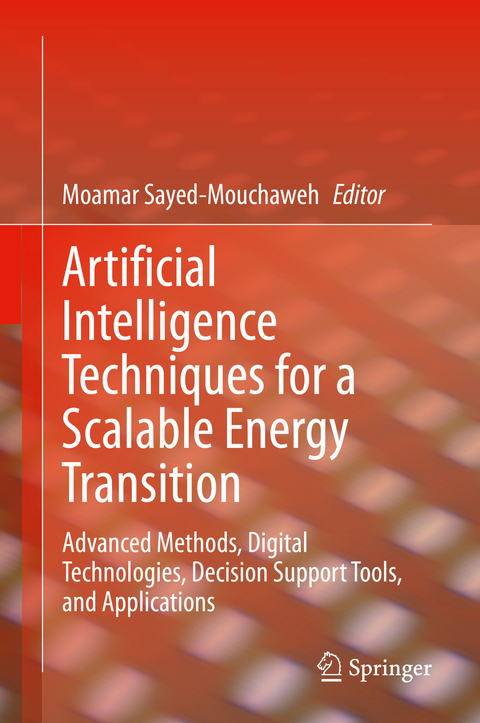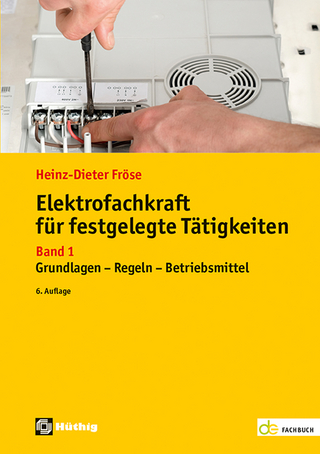
Artificial Intelligence Techniques for a Scalable Energy Transition
Springer International Publishing (Verlag)
978-3-030-42725-2 (ISBN)
Moamar Sayed-Mouchaweh received his Master degree from the University of Technology of Compiegne-France in 1999. Then, he received his PhD degree from the University of Reims-France in December 2002. He was working as Associated Professor in Computer Science, Control and Signal processing at the University of Reims-France in the Research center in Sciences and Technology of the Information and the Communication (CReSTIC). In December 2008, he obtained the Habilitation to Direct Researches (HDR) in Computer science, Control and Signal processing. Since September 2011, he is working as a Full Professor in the High National Engineering School of Mines "Ecole Nationale Supérieure des Mines de Douai" at the Department of Computer Science and Automatic Control (Informatique & Automatique). He edited the Springer book 'Learning in Non-Stationary Environments: Methods and Applications ', in April 2012 and wrote two Brief Springer books in Electrical and Computer Engineering: 'Discrete Event Systems: Diagnosis and Diagnosability', and 'Learning from Data Streams in Dynamic Environments'. He was a guest editor of several special issues of international journals. He was IPC Chair of the 12th IEEE International Conference on Machine Learning and Applications (ICMLA'13), the Conference Chair and IPC Chair of IEEE International Conference on Evolving and Adaptive Intelligent Systems (EAIS2015), and the IPC Chair of the 15th IEEE International Conference on Machine Learning and Applications (ICMLA'16). He is working as a member of the Editorial Board of Elsevier Journal "Applied Soft Computing" and Springer Journals "Evolving systems" and "Intelligent Industrial Systems".
Introduction.- Definition, motivation and impact of digitalization in energy transition.- Definition of a general scheme (layers) of a digitalized system in energy transition.- Challenges of digitalization in energy transition.- Artificial Intelligence for energy transition.- General principals and classification of Artificial Intelligence techniques for energy transition.- Artificial Intelligence for Smart Energy Management.- Smart energy management (intrusive and non-intrusive load monitoring).- Artificial Intelligence for Cyber Security and Privacy.- Artificial Intelligence for Mobility and Electrical Vehicles.- Mobility and electrical vehicles.- Artificial Intelligence for Micro Grid Operations and Dynamic Pricing Revenue Management.- Micro Grid operations and Dynamic Pricing Revenue Management.- Artificial Intelligence for Renewable Energy Penetration and Demand Side Management.- Renewable Energy Penetration and Demand Side Management.- Emerging Trends, Open problems, and Future Challenges.- Conclusion.
| Erscheinungsdatum | 29.06.2020 |
|---|---|
| Zusatzinfo | IX, 382 p. 146 illus., 120 illus. in color. |
| Verlagsort | Cham |
| Sprache | englisch |
| Maße | 155 x 235 mm |
| Gewicht | 752 g |
| Themenwelt | Technik ► Elektrotechnik / Energietechnik |
| Technik ► Nachrichtentechnik | |
| Schlagworte | AI for Cyber Security and Privacy • AI for energy transition • AI for Mobility and Electrical Vehicles • AI for Smart Energy Management • Artificial Intelligence for Micro Grid Operations • Artificial Intelligence for Renewable Energy Penet • Artificial Intelligence for Renewable Energy Penetration • digitalization in energy transition |
| ISBN-10 | 3-030-42725-0 / 3030427250 |
| ISBN-13 | 978-3-030-42725-2 / 9783030427252 |
| Zustand | Neuware |
| Haben Sie eine Frage zum Produkt? |
aus dem Bereich


